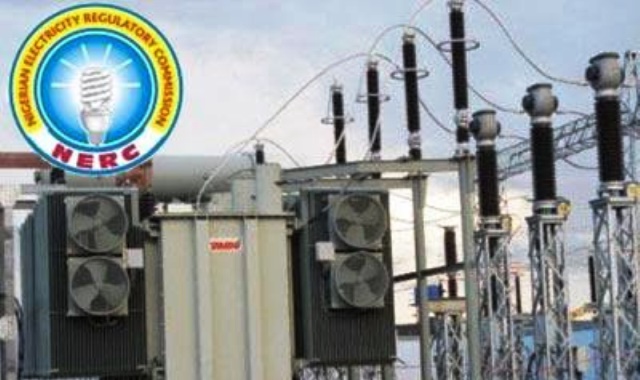News
NERC appeals judgment on powers to regulate electricity tariffs

Two weeks after a Federal High Court, Ikoyi, Lagos, ordered the Nigerian Electricity Regulatory Commission (NERC) not to embark on a hike in electricity tariff, the commission has filed a Notice of Appeal against the judgment.
In the Notice of Appeal before the Lagos Division of the Court of Appeal, counsels to NERC, Chief Anthony Idigbe (SAN), Nnamdi Oragwu, Peter Edokpayi and Tobenna Nnamani the appellant set out 14 grounds of appeal for the appellate court to determine.
The case which originated at the Federal High Court with Suit No: FHC/L/CS/768/2015 had as defendant the Nigerian Electricity Regulatory Commission (NERC) and the 13 plaintiffs included Barrister Toluwani Yemi Adebiyi, Abuja Electricity Distribution Plc, Ibadan Electricity Distribution Plc, Esco Electricity Distribution Plc, Ikeja Electricity Distribution Plc, Kaduna Electricity Distribution Plc, Kano Electricity Distribution Plc, Jos Electricity Distribution Plc, Benin Electricity Distribution Plc, Enugu Electricity Distribution Plc, Port Harcourt Electricity Distribution Plc, Yola Electricity Distribution Plc and Ziklagsis Network Ltd.
Appellant particularly stated in the grounds of appeal that:
The trial Judge erred in law when he held that the court had jurisdiction to entertain the 1st Respondent’s originating summons when the processes were incompetent and refused to decline jurisdiction to entertain the 1st Respondent’s originating summons when it was clear that the action was statute barred, having been brought outside the statutory period prescribed under Section 2(a) of the Public Officers Protection Act, Cap P41, LFN, 2004.
The trial judge took the position of the litigant by assisting the 1st Respondent in couching its claim.
The trial judge erred in law and deprived the Appellant of its constitutional right to fair hearing when he raised in its judgment issue of compliance of the Appellant’s counter affidavit with provision of the Evidence Act, admissibility of newspaper publication and granting relief to the 1st Respondent not sought without first giving the parties opportunity to address him on the issues raised suo motu.
The trial judge erred in law when he held that the 1st Respondent was allowed to approach the Court without exhausting the Appellant’s internal dispute resolution mechanism pursuant to Section 45 and 50 of the Electricity Power Sector Reform Act 2005 (EPSRA) because of the use of the word “may” in Section 50 (1) of the EPSRA 2005 when the clear intendment of the Act was establishment of condition precedents to exercise of jurisdiction by the Federal High Court.
The trial judge erred in law when he held that Appellant did not comply with the provision of Section 76 of the Electricity Power Sector Reform Act 2005 (EPSRA) in preparing its tariff methodology.
The learned trial judge erred in law when he placed the burden of proof of non-compliance with the Appellant rather than the 1st Respondent.
The trial judge misdirected himself in law in relying on facts and affidavits occurring after the findings of the Originating Summons and which did not form a part of the Originating Summons argued before the learned trial judge in deciding the substantive relief before the Court.
The trial judge erred in law in holding that the 1st Respondent had locus standi to institute the action when from the reliefs sought no personal rights of the 1st Respondent was put in issue.
The relief sought by the 1st Respondent did not raise any issue for determination of the rights or liabilities of the 1st Respondent.
The relief sought did not raise any reasonable cause of action.
The reliefs sought were incapable of execution.
The reliefs sought will point the court in a position of exercising executive powers vested only in the executive arm of government under the constitution.
In the Motion on Notice, Appellant’s counsel is seeking an order staying execution of the judgment delivered by Justice Idris on July 13, 2016, pending the hearing and determination of the 1st Defendant/Applicant’s appeal at the Court of Appeal.
The affidavit in support of the Motion on Notice for the stay of execution as deposed to by Martins Nwankwo stated that “refusal to grant this application will result in devastating consequences for the nation and indeed the entire electricity consumers in Nigeria as investment in power sector which encourages healthy competition will be discouraged. In the same vein, the entire electricity generation and distribution stands the risk of total collapse in view of the recent devastation caused by vandalisation of power installations with its attendant decrease in power generation and distribution.
“If this application is not favourably considered, there is a high likelihood that the citizens of the country will be subjected to total blackout while business and investments will be drastically affected. We submit that any attempt to further subject the masses to further hardship will be setting the stage for chaos and anarchy in the society; which effect may be overwhelming.”




 Davido's Net Worth & Lifestyle
Davido's Net Worth & Lifestyle 
